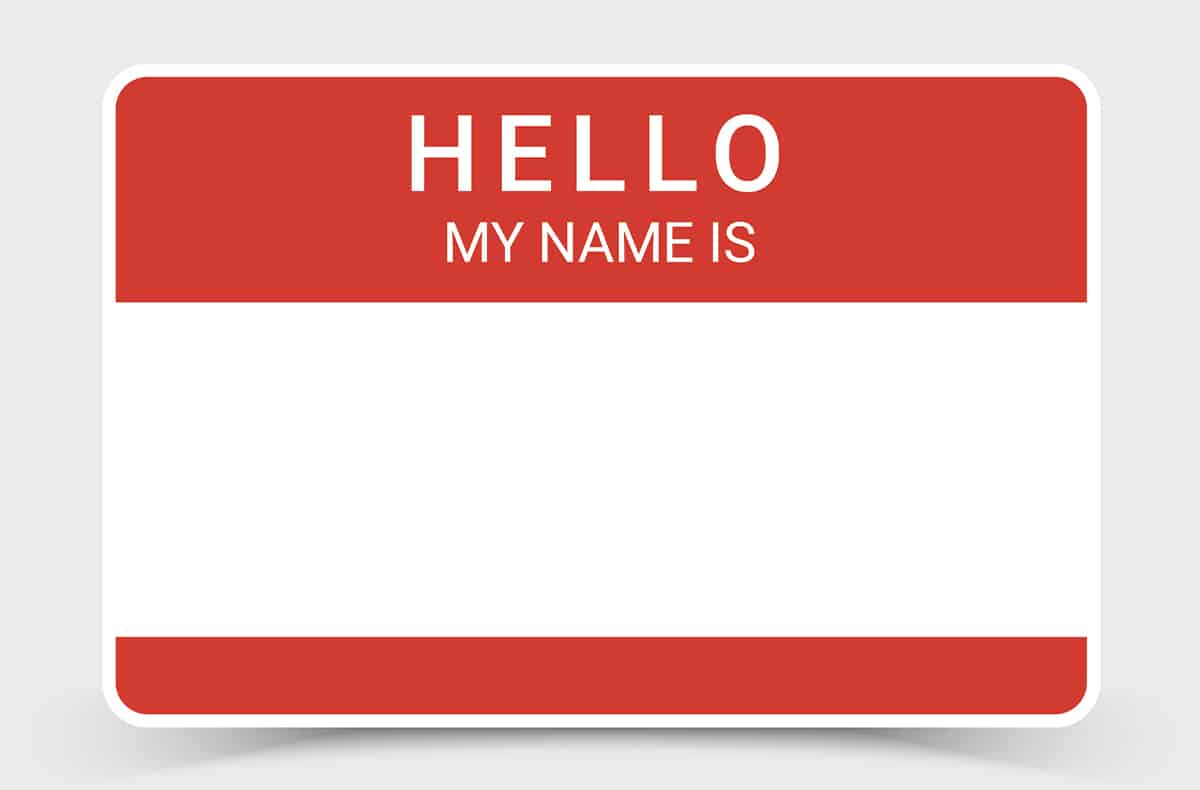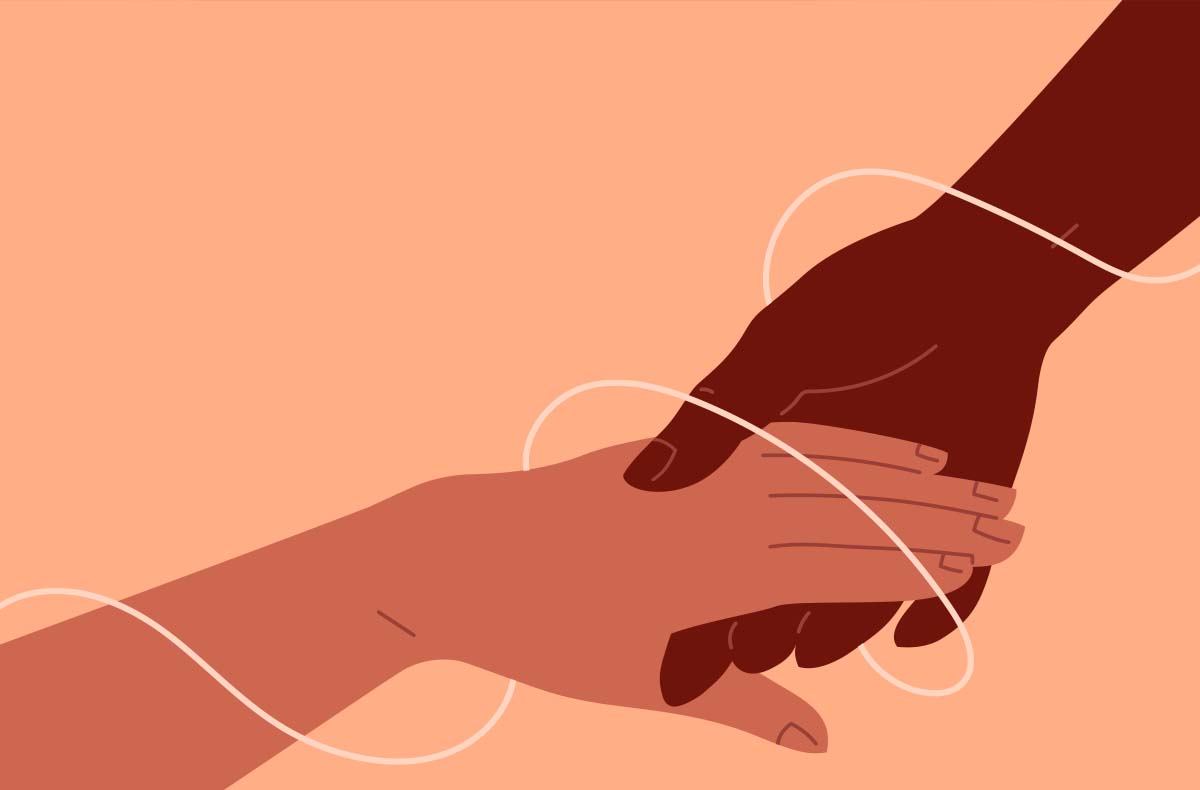
What’s in a name? For women who get married… a lot. Eventually, most of us are faced with the question: “Will you take your spouse’s last name?” Or less commonly: “Will they take yours?” Or “Will you create a new hybrid?” It’s a complicated question that layers on history, tradition, family, autonomy, and identity. Is it possible to be a modern, feminist woman and then give up your own surname for someone else’s? And look, I’m going to be clear with you: changing your name is a pain in the ass. New driver’s license, new social security card, new passport, newly updated credit cards, it goes on and on in an obnoxious way that I certainly was surprised by when I did it myself. So: let’s talk about the decision to change one’s name and what it means for modern women.
We may feel like we live in a modern society where the antiquated ideas about men “owning” their wives are long in the past, but the truth is that, as of 2021, 70% of women in the United States who got married still took their husband’s last name, and doing so still affects our societal perception of married women. A 2017 study showed that women who took their husband’s last names were seen as more feminine regardless of outward appearance or style. Things like that certainly annoy me to no end. For one, not everyone wants to be seen as more traditionally feminine. I am very femme, it’s part of who I am and how I identify, but that doesn’t work for every woman.
Beyond appearances, the act of giving up one’s name and taking on your spouse’s also buys into a traditional patriarchal structure of male ownership. In this old fashioned view of marriage, a wife is more of a subservient subject to her husband than an equal—like a child to be supervised and guided, who would follow the patriarch’s command. (Think “love, honor and obey.”) This wasn’t just a social norm reinforced by religion: it was built into law. Married women weren’t even allowed to get their own credit cards without their husbands’ written permission until the 1970s… that’s only 50 years ago. The idea of marriage as ownership instead of partnership is appalling to most of us, and in a society where women also regularly have professional jobs and are sometimes the breadwinners in relationships, it’s just silly.
All that said… I am one of the 70% of people who took my spouse’s last name. And yet, I think you’d be hard pressed to say I am traditional. For one, I still use my maiden name as my pen name. The Amanda Deibert in my byline on this article… that’s my maiden name. For me, the compromise was that I wanted to take my spouse’s last name for family reasons, but I also wanted to keep the career I had built under my own name as a writer and not feel like I had to start over with name recognition.
The other nonconventional part of my personal story: I took my wife’s last name and before that, I had my mother’s maiden name. I was born to a single mom and then married a woman, so for me, I may be following a “patriarchal” custom, but I’ve only ever had a name given to me by another woman. I think that’s kind of cool, and it’s also a good reminder that just because you are doing something traditional doesn’t mean it isn’t a choice. If you are a straight woman who wants to take her husband’s last name and keep your name for your career, should you be judged any differently than I am? As long as it is your choice and not a weird pressure thing, I don’t think so.
The reasons that I took my wife’s last name are personal, and also family-oriented. We knew we wanted children; we knew I would be the one to carry them. In this way, we were preparing for a unified family, and honestly, as an LGBTQ couple, it was one way to firm up that status that can sometimes be shaky in society. I don’t think I would have been as concerned about us all having the same last name if I felt confident that our rights would always be clear and firm. Our daughter was five months old before our marriage—which took place three years before we had her—was federally recognized, but our last names were one family unit from the jump. So, for us, for reasons of love and reasons of safety, this choice makes sense. We have other friends in same sex couples who have done hybrid last names for their kids for similar reasons. I don’t think there is a right or wrong answer, and I think when we narrow things down to just, “I want to do this for tradition” or “I want to NOT do this because screw the patriarchy” we are sometimes over-simplifying complex and nuanced conversations that have to do with culture and our own positions in society.
So instead of offering hard and fast rules about last names, I want to offer some important questions:
Is your last name an important part of your cultural identity? If you took your spouse’s would that feel like you had erased it?
Do you want to have children? If so, how important is a unified family name to you? Does it have to be one certain spouse’s name?
Do you like one name more than the other?
Do you feel pressured into this decision?
Is there a compromise that feels better to you, like a professional and personal last name or a hyphen or hybrid one?
Do you just WANT to take or keep one name? (Guess what… this answer is enough!)
Marriage will bring you so many bigger decisions and compromises, but this one will follow you potentially the rest of your life—and definitely on your passports, so take some time to make sure you feel great about your choice for your identity. It’s YOURS and yours alone.



